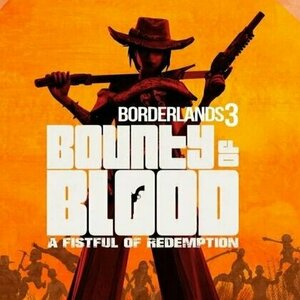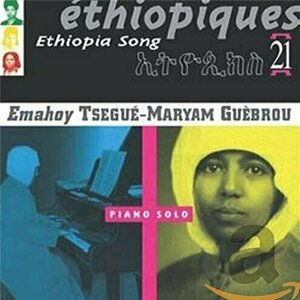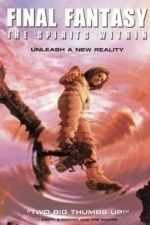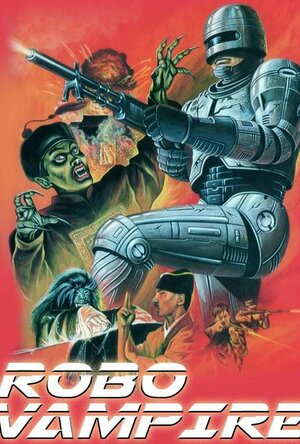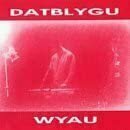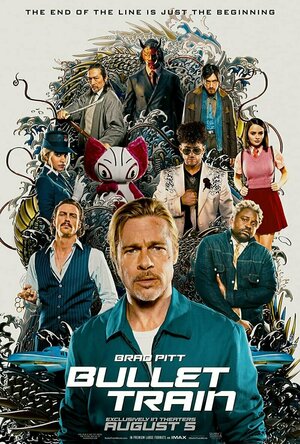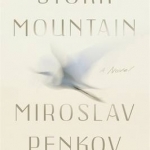Search
Search results
Gareth von Kallenbach (980 KP) rated the PC version of Borderlands 3: Bounty of Blood in Video Games
Jul 2, 2020
The third DLC for Borderlands 3 has arrived and Bounty of Blood serves up more of the action, guns, and mayhem that fans of the series have become accustomed to.
Answering a call for a Bounty Hunter; the Vault Hunter(s) arrive on the planet of Gehenna which has been largely forgotten after being exploited by one of the big companies in years past.
The planet is a hybrid of the Old West and current Borderlands technology and is populated with all manner of dangerous creatures; many which resemble Dinosaurs.
Upon arriving at the town of Vestige’ players learn that the town is under attack by a vicious gang known as the “Devil Riders”. You are then tasked with eliminating the threat and taking down their leader to collect the Bounty.
Naturally there is much more in play as a larger threat is revealed and players will have to fight their way through various areas to get to the bottom of the mystery and save the day.
The game has lots of action and introduces many new characters while omitting appearances from any past characters in the series. There are abundant new weapons as one would expect in a Borderlands game and the Western theme offered up some great locales and visuals as well as some great music. The game has a narrator which adds a new dimension to the game as it is fun to hear how some of your actions become known as events such as the “Bathhouse Massacre” as an example.
The DLC did not seem as long as the past two did and did not seem as challenging as I was able to complete the campaign on my own and did not have any areas where I was challenged to complete.
There are side missions as well and some will present themselves after the game and credits end so players who want to continue to explore will have many opportunities to do so.
There are also new environmental weapons that players can use to cause destruction or briefly control enemies which adds a new dimension to the game.
Bounty of Blood is a solid and highly-enjoyable DLC for the game and I look forward to seeing what the next DLC offers up.
4 stars out of 5.
Answering a call for a Bounty Hunter; the Vault Hunter(s) arrive on the planet of Gehenna which has been largely forgotten after being exploited by one of the big companies in years past.
The planet is a hybrid of the Old West and current Borderlands technology and is populated with all manner of dangerous creatures; many which resemble Dinosaurs.
Upon arriving at the town of Vestige’ players learn that the town is under attack by a vicious gang known as the “Devil Riders”. You are then tasked with eliminating the threat and taking down their leader to collect the Bounty.
Naturally there is much more in play as a larger threat is revealed and players will have to fight their way through various areas to get to the bottom of the mystery and save the day.
The game has lots of action and introduces many new characters while omitting appearances from any past characters in the series. There are abundant new weapons as one would expect in a Borderlands game and the Western theme offered up some great locales and visuals as well as some great music. The game has a narrator which adds a new dimension to the game as it is fun to hear how some of your actions become known as events such as the “Bathhouse Massacre” as an example.
The DLC did not seem as long as the past two did and did not seem as challenging as I was able to complete the campaign on my own and did not have any areas where I was challenged to complete.
There are side missions as well and some will present themselves after the game and credits end so players who want to continue to explore will have many opportunities to do so.
There are also new environmental weapons that players can use to cause destruction or briefly control enemies which adds a new dimension to the game.
Bounty of Blood is a solid and highly-enjoyable DLC for the game and I look forward to seeing what the next DLC offers up.
4 stars out of 5.
Caribou recommended Ethiopiques 21: Piano Solo by Emahoy Tsegue-Maryam Guebrou in Music (curated)
LoganCrews (2861 KP) rated Final Fantasy: The Spirits Within (2001) in Movies
Sep 20, 2020
I have almost nothing new to add, everything you've heard is true: the animation is almost religiously astounding for the time and even now (in spite of some expected hiccups for the rudimentary motion capture of the time: i.e. speed being an issue - anything that moves above 0.1 MPH has an unsightly motion blur all over it and all the running looks like mall-jogging), CGI wouldn't look this good for years and years afterward but the thing moves at a snail's pace with an oddly apparent avoidance of any sort of fun. Certainly still weird and visually prepossessing enough to get a pass (if this didn't have its unforgettable photorealistic animation it would suck just as hard as any other generic sci-fi fodder, this is home to some truly bracing imagery) - but what the actual hell were they thinking with this writing? All the characters are nonentities in their own story (delivered with similarly boring voice acting by an all-star cast, which most animated films would later replicate directly) and whatever remnants of a story are left behind in the rubble *do* have the potential to be poignant and thought-provoking but are rather just passively mentioned a time or two by way of banal exposition into a mess of things that don't add up to anything more than a stupid story. Can't believe they thought this would work with... anyone (especially fans of the character-driven games given that they turned this into some odd but rather bland alien film for some confounding reason lol) considering all the massive amounts of money they shoveled into it - and minus a few more points for being another tech-heavy future fantasy set in a world that's entirely grey and decrepit. However, the last half hour is some squarely invigorating, enigmatic spectacle that finds an intense beauty in how mind-boggling and glamorous it all is - you'd think the whole thing is always one second away from collapsing into the best of non-western genre surreality. In fact It seems almost unreal in and of itself to be watching something so conventional yet so unrestrained and auteurish. Really needed like eight movies to fully explore these themes but I'm also kind of glad they didn't - half epic and half yawnsville but the epic is more epic than the yawnsville is yawnsville.
Jesters_folly (230 KP) rated Robo Vampire (1988) in Movies
Aug 11, 2020
Contains spoilers, click to show
Drug baron Mr Young is fed up with Narcotics agent Tom Wilde interfering with his plans so he hires a Taoist monk to train a vampire to kill him. After his death Tom is rebuilt as an Android Robot and sent on a mission to help rescue a captured officer.
The cover/poster art would have us believe that this is a Robocop vs vampire movie and I suppose that it is in the looses possible sense. First off this is low budget Hong Kong Jiangshi (rotting corpse) movie with added cyborg (Sorry Android Robot) so the vampires are of the hopping type not the western 'gentleman'.
I've given this film a 6 on the basis that it's so bad it's good. Most of the vampires are ok and look like the standard hopping type but the lead vampire seems to be wearing a gorilla mask to make it look rotten. No one bleeds when shot and it's obvious when dummies are used instead of stun doubles . Even taking this into account I would have given Robo Vampire a higher rating but it gets hard to follow. There are two story-lines to follow, the rescue of Sophie, an undercover agent that has been kidnapped and the Tom-robot vs the vampire's and ghost. And this is the first confusing part of the plot. Tom's creators say that he is to be sent on the rescue mission but he is never with the rescue party. Instead he goes off to fight the vampire. So the film switches between the rescue and Tom vs the vampires. Even this wouldn't be a problem except that the story-lines seem to continue even when we're not watching. For example, the rescue party are heading towards the camp with baddies jumping out at them from all directions. The we switch to Robo and when we switch back to the rescue two of the party are swimming in a lake with no sign of any of the others and end up getting captured, then back to Robo, then back the rest of the rescue party who don't even acknowledged that two of their party are missing but aren't surprised when they see them as prisoners. This sort of thing happens a lot, it's almost as if some one just cut out random scenes. Characters also just seem to appear with no introduction and switch sides with no seeming reason.
The cover/poster art would have us believe that this is a Robocop vs vampire movie and I suppose that it is in the looses possible sense. First off this is low budget Hong Kong Jiangshi (rotting corpse) movie with added cyborg (Sorry Android Robot) so the vampires are of the hopping type not the western 'gentleman'.
I've given this film a 6 on the basis that it's so bad it's good. Most of the vampires are ok and look like the standard hopping type but the lead vampire seems to be wearing a gorilla mask to make it look rotten. No one bleeds when shot and it's obvious when dummies are used instead of stun doubles . Even taking this into account I would have given Robo Vampire a higher rating but it gets hard to follow. There are two story-lines to follow, the rescue of Sophie, an undercover agent that has been kidnapped and the Tom-robot vs the vampire's and ghost. And this is the first confusing part of the plot. Tom's creators say that he is to be sent on the rescue mission but he is never with the rescue party. Instead he goes off to fight the vampire. So the film switches between the rescue and Tom vs the vampires. Even this wouldn't be a problem except that the story-lines seem to continue even when we're not watching. For example, the rescue party are heading towards the camp with baddies jumping out at them from all directions. The we switch to Robo and when we switch back to the rescue two of the party are swimming in a lake with no sign of any of the others and end up getting captured, then back to Robo, then back the rest of the rescue party who don't even acknowledged that two of their party are missing but aren't surprised when they see them as prisoners. This sort of thing happens a lot, it's almost as if some one just cut out random scenes. Characters also just seem to appear with no introduction and switch sides with no seeming reason.
Hazel (1853 KP) rated The Moon Field in Books
Dec 17, 2018
<b>My rating: 3.5</b>
<i>I received this book for free through Goodreads First Reads.</i>
<i>The Moon Field</i> is an historical romance novel set during the First World War. It focuses mainly on two people: George and Violet, although there is a wide range of characters.
Split into three parts the novel begins with George, an 18 year old postman planning on telling Miss Violet of his feelings for her, only to find out that she is already engaged. He runs off feeling jealous and ends up enlisting for the army. At first I thought the description of George made him seem more like a child than a young adult and this annoyed me a little, however this helped to emphasise the changes he undergoes as a result of the war.
Part two is mostly set in Flanders where George is involved in the fighting resulting in deaths of certain other characters for which George blames himself despite it not really being his fault. This section ends with George being hurt himself and part three begins with him being returned to a hospital in England where he begins to recover although is now deformed. Throughout this final part George suffers with depression and thinks that he is now a freak. He has to deal with lots of rejection but, thankfully, the novel ends with a more positive outlook for his future.
Knowing in advance that romance was to be involved, it appeared at first that there might be some romantic attachment developed between George and Violet. From the very beginning I personally did not want this to happen. It did not feel right particularly as they were of different social classes, which at that time was quite important. Fortunately this did not happen and I was fairly pleased with the ending.
I think that Allnatt’s writing is extremely good and reflects the time period well. I quite often find when reading historical novels that authors use words or phrases that are too modern to have actually been said at that time. There was none of that problem with <i>The Moon Field</i>. Allnatt had also researched extremely well to get across the experiences of the soldiers on the Western Front. She mentions in her acknowledgements that she read many soldiers accounts of their experiences in the Great War. All her research defiantly paid off!
All in all it is a great historical novel.
<i>I received this book for free through Goodreads First Reads.</i>
<i>The Moon Field</i> is an historical romance novel set during the First World War. It focuses mainly on two people: George and Violet, although there is a wide range of characters.
Split into three parts the novel begins with George, an 18 year old postman planning on telling Miss Violet of his feelings for her, only to find out that she is already engaged. He runs off feeling jealous and ends up enlisting for the army. At first I thought the description of George made him seem more like a child than a young adult and this annoyed me a little, however this helped to emphasise the changes he undergoes as a result of the war.
Part two is mostly set in Flanders where George is involved in the fighting resulting in deaths of certain other characters for which George blames himself despite it not really being his fault. This section ends with George being hurt himself and part three begins with him being returned to a hospital in England where he begins to recover although is now deformed. Throughout this final part George suffers with depression and thinks that he is now a freak. He has to deal with lots of rejection but, thankfully, the novel ends with a more positive outlook for his future.
Knowing in advance that romance was to be involved, it appeared at first that there might be some romantic attachment developed between George and Violet. From the very beginning I personally did not want this to happen. It did not feel right particularly as they were of different social classes, which at that time was quite important. Fortunately this did not happen and I was fairly pleased with the ending.
I think that Allnatt’s writing is extremely good and reflects the time period well. I quite often find when reading historical novels that authors use words or phrases that are too modern to have actually been said at that time. There was none of that problem with <i>The Moon Field</i>. Allnatt had also researched extremely well to get across the experiences of the soldiers on the Western Front. She mentions in her acknowledgements that she read many soldiers accounts of their experiences in the Great War. All her research defiantly paid off!
All in all it is a great historical novel.
Hazel (1853 KP) rated Capturing Jasmina (India's Street Kids #1) in Books
Dec 17, 2018
<i>This eBook was provided by the publisher via NetGalley in exchange for an honest review</i>
Kimberly Rae draws attention to the ongoing trafficking of children in India in her young adult novel <i>Capturing Jasmina</i>. Jasmina was only ten when her father sold both her and her brother Samir to a man promising safety and good education. In reality the siblings end up in a sweatshop slaving over clothes to be sold in America. After three years they manage to escape only to be trafficked a second time. Eventually Jasmina and Samir are separated and Jasmina becomes a street kid.
Whilst living on the streets Jasmina encounters a Christian missionary, Asha, rescuing women from brothels by either offering them a safe place to live or at the very least spiritually, by teaching them about God and Jesus. Intrigued Jasmina follows Asha who then offers to help her too. After having her childhood robbed from her, it seems like Jasmina, with the help of those who trust in God, will get back on her feet again.
Despite being a short novel, Rae paints a contrasting image to what the western world is used to. Jasmina finds the concept of a simple toilet baffling. It is not until you hear or see what is happening to innocent people in other parts of the world that you realize there are so many things in life you take for granted.
<i>Capturing Jasmina</i> emphasizes how difficult it is to escape once trafficked. In these situations people belong to everyone but themselves. They have no freedom and running away can cause more problems than it solves. The novel also shows what Christians can do to help. Although no one can completely solve the problems, the tiniest piece of aid they can provide is a step in the right direction.
It was slightly disappointing that we do not find out what happened to Samir once he was separated from his sister. Jasmina’s first person narrative makes it clear that what she wants most is to be reunited with her family. In a way, although there is a positive ending, not yet finding her brother makes it clear that there cannot always be happy endings. It is not possible to save everyone.
Written from a young teenagers point of view makes this book suitable for ages twelve and older. Christians will appreciate the biblical references however there is not too much religion for non-believers or those of other religions to get offended by.
Kimberly Rae draws attention to the ongoing trafficking of children in India in her young adult novel <i>Capturing Jasmina</i>. Jasmina was only ten when her father sold both her and her brother Samir to a man promising safety and good education. In reality the siblings end up in a sweatshop slaving over clothes to be sold in America. After three years they manage to escape only to be trafficked a second time. Eventually Jasmina and Samir are separated and Jasmina becomes a street kid.
Whilst living on the streets Jasmina encounters a Christian missionary, Asha, rescuing women from brothels by either offering them a safe place to live or at the very least spiritually, by teaching them about God and Jesus. Intrigued Jasmina follows Asha who then offers to help her too. After having her childhood robbed from her, it seems like Jasmina, with the help of those who trust in God, will get back on her feet again.
Despite being a short novel, Rae paints a contrasting image to what the western world is used to. Jasmina finds the concept of a simple toilet baffling. It is not until you hear or see what is happening to innocent people in other parts of the world that you realize there are so many things in life you take for granted.
<i>Capturing Jasmina</i> emphasizes how difficult it is to escape once trafficked. In these situations people belong to everyone but themselves. They have no freedom and running away can cause more problems than it solves. The novel also shows what Christians can do to help. Although no one can completely solve the problems, the tiniest piece of aid they can provide is a step in the right direction.
It was slightly disappointing that we do not find out what happened to Samir once he was separated from his sister. Jasmina’s first person narrative makes it clear that what she wants most is to be reunited with her family. In a way, although there is a positive ending, not yet finding her brother makes it clear that there cannot always be happy endings. It is not possible to save everyone.
Written from a young teenagers point of view makes this book suitable for ages twelve and older. Christians will appreciate the biblical references however there is not too much religion for non-believers or those of other religions to get offended by.
Gruff Rhys recommended Pyst by Datblygu in Music (curated)
Heather Cranmer (2721 KP) created a post
Nov 3, 2021
Gareth von Kallenbach (980 KP) rated Bullet Train (2022) in Movies
Aug 6, 2022
I first got an extended look at “Bullet Train” during Cinemacon when a reel of the film was shown during the Sony showcase to an enthusiastic crowd. The footage mixed action and humor with quirky and dysfunctional characters and became a must-see film for me based on the teased footage.
The film is based on a book by Kotaro Isaka and stars Brad Pitt as an operative named Ladybug. He is called at the last minute as a replacement and given instructions to board a Bullet Train and snatch a case in one of the passenger areas before exiting at the next station.
Having gone through a recent crisis, Ladybug is awash in various philosophical and new age ideas as he attempts to find his inner peace and a new path in life, as such he does not take a gun with him when he boards despite being instructed to do so by his handler.
The train is filled with various killers and dangerous people who are there to accomplish various goals and most of whom fail frequently in violent and hysterical manners which further complicate their agendas as well as that of the others and often puts them into conflict with one another as the story unfolds.
It would be difficult to go into further detail on the various characters without spoiling some of the reveals and twists along the way but suffice it to say that Aaron Taylor-Johnson and Brian Tyree Henry as Tangerine and Lemon are great and their banter, as well as capers, is a frequent highlight.
There are some surprise cameos in the film which add to the fun and Joey King is as great as perhaps one of the more complicated characters in the film. Pitt is clearly the star but the film allows him as well as his supporting cast plenty of moments to shine and the humor flies fast and frequent as does the action which creates a very engaging and stylistic hybrid of western and Asian cinema.
The film does drag slightly late before leading to the finale but thanks to the great cast and action it comes through in the end.
Director David Leitch has worked on films such as “Deadpool 2”, “Atomic Blonde”, and “John Wick: and you can see that he has a knack for directing action and comedy as this is a very fun and engaging film that has some great action and humor and one that you will not want to miss.
4 stars out of 5.
The film is based on a book by Kotaro Isaka and stars Brad Pitt as an operative named Ladybug. He is called at the last minute as a replacement and given instructions to board a Bullet Train and snatch a case in one of the passenger areas before exiting at the next station.
Having gone through a recent crisis, Ladybug is awash in various philosophical and new age ideas as he attempts to find his inner peace and a new path in life, as such he does not take a gun with him when he boards despite being instructed to do so by his handler.
The train is filled with various killers and dangerous people who are there to accomplish various goals and most of whom fail frequently in violent and hysterical manners which further complicate their agendas as well as that of the others and often puts them into conflict with one another as the story unfolds.
It would be difficult to go into further detail on the various characters without spoiling some of the reveals and twists along the way but suffice it to say that Aaron Taylor-Johnson and Brian Tyree Henry as Tangerine and Lemon are great and their banter, as well as capers, is a frequent highlight.
There are some surprise cameos in the film which add to the fun and Joey King is as great as perhaps one of the more complicated characters in the film. Pitt is clearly the star but the film allows him as well as his supporting cast plenty of moments to shine and the humor flies fast and frequent as does the action which creates a very engaging and stylistic hybrid of western and Asian cinema.
The film does drag slightly late before leading to the finale but thanks to the great cast and action it comes through in the end.
Director David Leitch has worked on films such as “Deadpool 2”, “Atomic Blonde”, and “John Wick: and you can see that he has a knack for directing action and comedy as this is a very fun and engaging film that has some great action and humor and one that you will not want to miss.
4 stars out of 5.
Hazel (1853 KP) rated Stork Mountain in Books
May 25, 2017
Captivating
I received this book for free through Goodreads First Reads.
Bulgarian-born, short storywriter Miroslav Penkov has turned to full-length novels with this captivating book, Stork Mountain. Set in the Bulgarian Strandja Mountains on the border of Turkey, he explores religion, mythology, the past and the present in a society affected by long-term political unrest.
The narrator, a young man who remains nameless throughout, relocated to the United States of America as a child after the fall of Communism. Now he returns to his home country to find his grandfather, an elderly man he lost contact with three years ago. However his real motive is purely for self gain: to sell his section of the family land in order to pay off student loans and his rising debt.
Naturally, things do not go according to plan. The protagonist finds his grandfather hiding in the village of Klisura, a place divided between the Christians and the Muslims. He also discovers that there is no longer any land for him to sell, making his journey fairly pointless. Instead of returning to the Western world, he stays in his grandfather’s house and, very slowly, begins to learn the truth about his family’s past, the man his grandfather once was, and the superstitious pagan activities still affecting some of the village’s inhabitants today.
Stork Mountain is full of the history, folklore and mythology of a little known about European country. Although ultimately a contemporary novel, there is a lot to learn about events that led up to southern Bulgaria’s current condition. As well as being informative, Penkov plays with his readers’ hearts by including a Romeo and Juliet-esque relationship between the narrator and a Muslim girl, and also reveals a similar affair between a younger Grandfather and the girl of his dreams.
Books containing politics are often reserved for those with particular interest in the topic, however Stork Mountain is suitable for a much larger audience. The inclusion of Bulgarian folklore adds a dark fairytale-like quality to the story; and the romance, something for the reader to latch onto.
On reading the blurb I jumped to the conclusion that this book would be boring. I was wrong. Whereas stories with similar themes can be hard going, Stork Mountain was fast paced and easy to read. There were a few confusions about who was talking or whether the narrative was about the past or the future, but these issues may be something that is improved upon as the author finds his groove in full-length novels.
Even if, like me, you have prejudged this book to be boring, I urge you to give it a go. You may find yourself pleasantly surprised. Miroslav Penkov definitely has a future in the world of literature.
Bulgarian-born, short storywriter Miroslav Penkov has turned to full-length novels with this captivating book, Stork Mountain. Set in the Bulgarian Strandja Mountains on the border of Turkey, he explores religion, mythology, the past and the present in a society affected by long-term political unrest.
The narrator, a young man who remains nameless throughout, relocated to the United States of America as a child after the fall of Communism. Now he returns to his home country to find his grandfather, an elderly man he lost contact with three years ago. However his real motive is purely for self gain: to sell his section of the family land in order to pay off student loans and his rising debt.
Naturally, things do not go according to plan. The protagonist finds his grandfather hiding in the village of Klisura, a place divided between the Christians and the Muslims. He also discovers that there is no longer any land for him to sell, making his journey fairly pointless. Instead of returning to the Western world, he stays in his grandfather’s house and, very slowly, begins to learn the truth about his family’s past, the man his grandfather once was, and the superstitious pagan activities still affecting some of the village’s inhabitants today.
Stork Mountain is full of the history, folklore and mythology of a little known about European country. Although ultimately a contemporary novel, there is a lot to learn about events that led up to southern Bulgaria’s current condition. As well as being informative, Penkov plays with his readers’ hearts by including a Romeo and Juliet-esque relationship between the narrator and a Muslim girl, and also reveals a similar affair between a younger Grandfather and the girl of his dreams.
Books containing politics are often reserved for those with particular interest in the topic, however Stork Mountain is suitable for a much larger audience. The inclusion of Bulgarian folklore adds a dark fairytale-like quality to the story; and the romance, something for the reader to latch onto.
On reading the blurb I jumped to the conclusion that this book would be boring. I was wrong. Whereas stories with similar themes can be hard going, Stork Mountain was fast paced and easy to read. There were a few confusions about who was talking or whether the narrative was about the past or the future, but these issues may be something that is improved upon as the author finds his groove in full-length novels.
Even if, like me, you have prejudged this book to be boring, I urge you to give it a go. You may find yourself pleasantly surprised. Miroslav Penkov definitely has a future in the world of literature.
